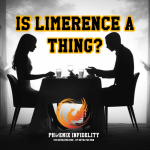
In this conversation we talk about this term “Limerence” and how the unfaithful partner’s experience of romantic love probably shares similarities with addiction based on Dr. Helen Fisher’s studies. We also talk about flirting with other people while in a committed relationship and where to draw the line when we find other people attractive. We hope you enjoy this content and if you do please support us by subscribing at www.phoenixinfidelity.com
References:
A few scientific studies conducted to understand the neurobiological processes associated with romantic love.
1. “The Neural Basis of Romantic Love” by Fisher et al. (2002): This study used functional magnetic resonance imaging (fMRI) to investigate brain activity in individuals who reported being intensely in love. The researchers found activation in several brain regions, including the caudate nucleus and ventral tegmental area, which are associated with reward, motivation, and pleasure.
2. “Reward, Addiction, and Emotion Regulation Systems Associated With Rejection in Love” by Aron et al. (2005): This study used fMRI to examine brain activity in participants who had recently experienced a romantic rejection. The findings suggested that regions associated with reward and motivation, such as the nucleus accumbens and prefrontal cortex, were activated during the experience of rejection.
3. “The Brain in Love: Erotic Stimulus Activates Reward System in the Human Brain” by Ortigue et al. (2007): In this study, researchers used fMRI to investigate brain activation in response to erotic stimuli. The findings revealed increased activity in brain regions associated with reward and pleasure, including the insula, orbitofrontal cortex, and striatum.
4. “Intense, Passionate, Romantic Love: A Natural Addiction?” by Zeki (2007): Zeki’s study utilized fMRI to examine brain activity in individuals who reported being deeply in love. The results suggested that the experience of romantic love shares similarities with addiction, as brain regions associated with reward, motivation, and cravings, such as the caudate nucleus and insula, were activated.
5. Fisher, H. E., Xu, X., Aron, A., & Brown, L. L. (2016): This study explores the idea of intense, passionate romantic love as a natural addiction. The researchers draw parallels between the brain mechanisms involved in romantic love and those associated with substance abuse, suggesting that certain aspects of romantic love can resemble addictive behaviors.